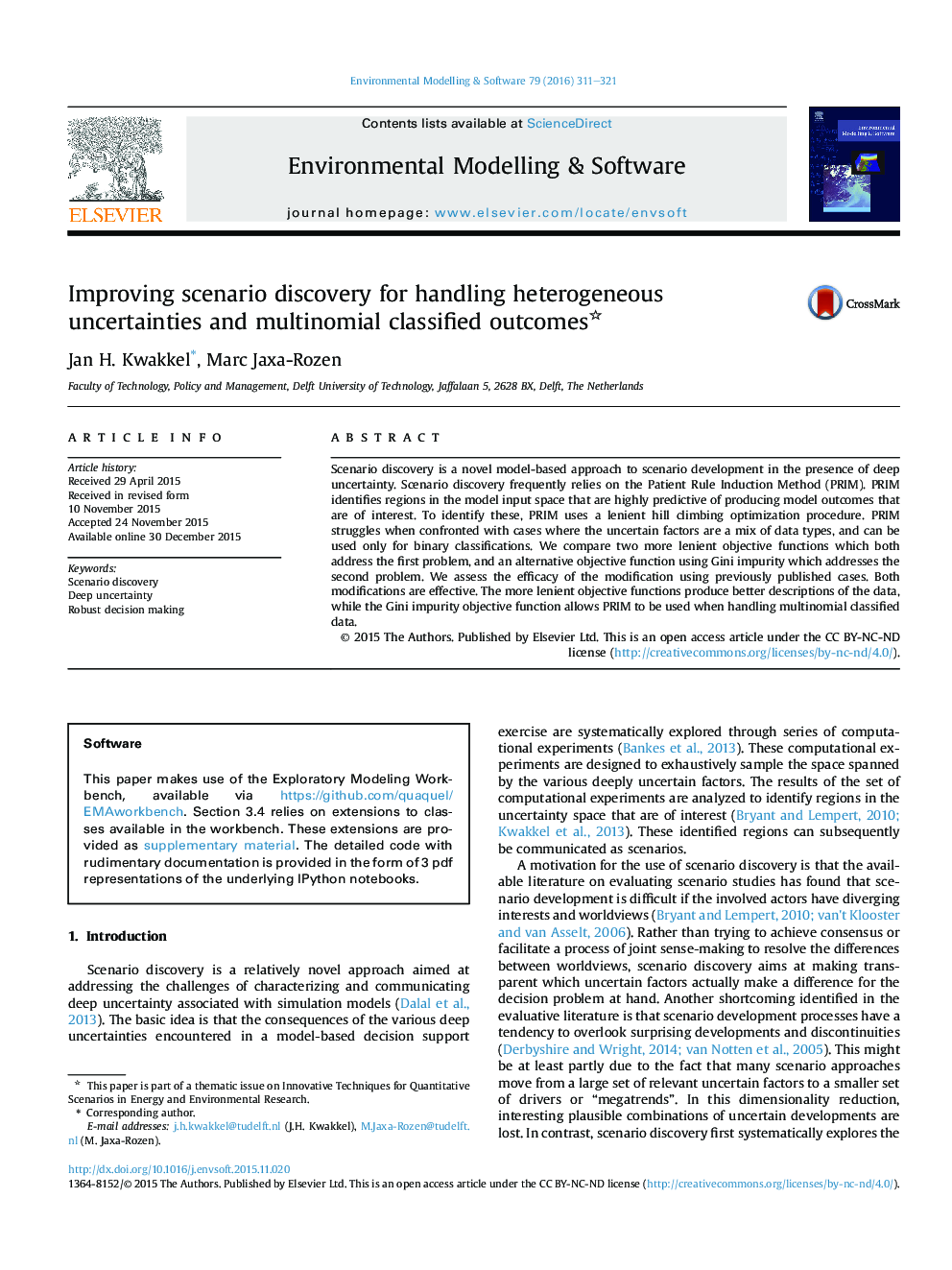| Article ID | Journal | Published Year | Pages | File Type |
|---|---|---|---|---|
| 6962585 | Environmental Modelling & Software | 2016 | 11 Pages |
Abstract
Scenario discovery is a novel model-based approach to scenario development in the presence of deep uncertainty. Scenario discovery frequently relies on the Patient Rule Induction Method (PRIM). PRIM identifies regions in the model input space that are highly predictive of producing model outcomes that are of interest. To identify these, PRIM uses a lenient hill climbing optimization procedure. PRIM struggles when confronted with cases where the uncertain factors are a mix of data types, and can be used only for binary classifications. We compare two more lenient objective functions which both address the first problem, and an alternative objective function using Gini impurity which addresses the second problem. We assess the efficacy of the modification using previously published cases. Both modifications are effective. The more lenient objective functions produce better descriptions of the data, while the Gini impurity objective function allows PRIM to be used when handling multinomial classified data.
Related Topics
Physical Sciences and Engineering
Computer Science
Software
Authors
Jan H. Kwakkel, Marc Jaxa-Rozen,
